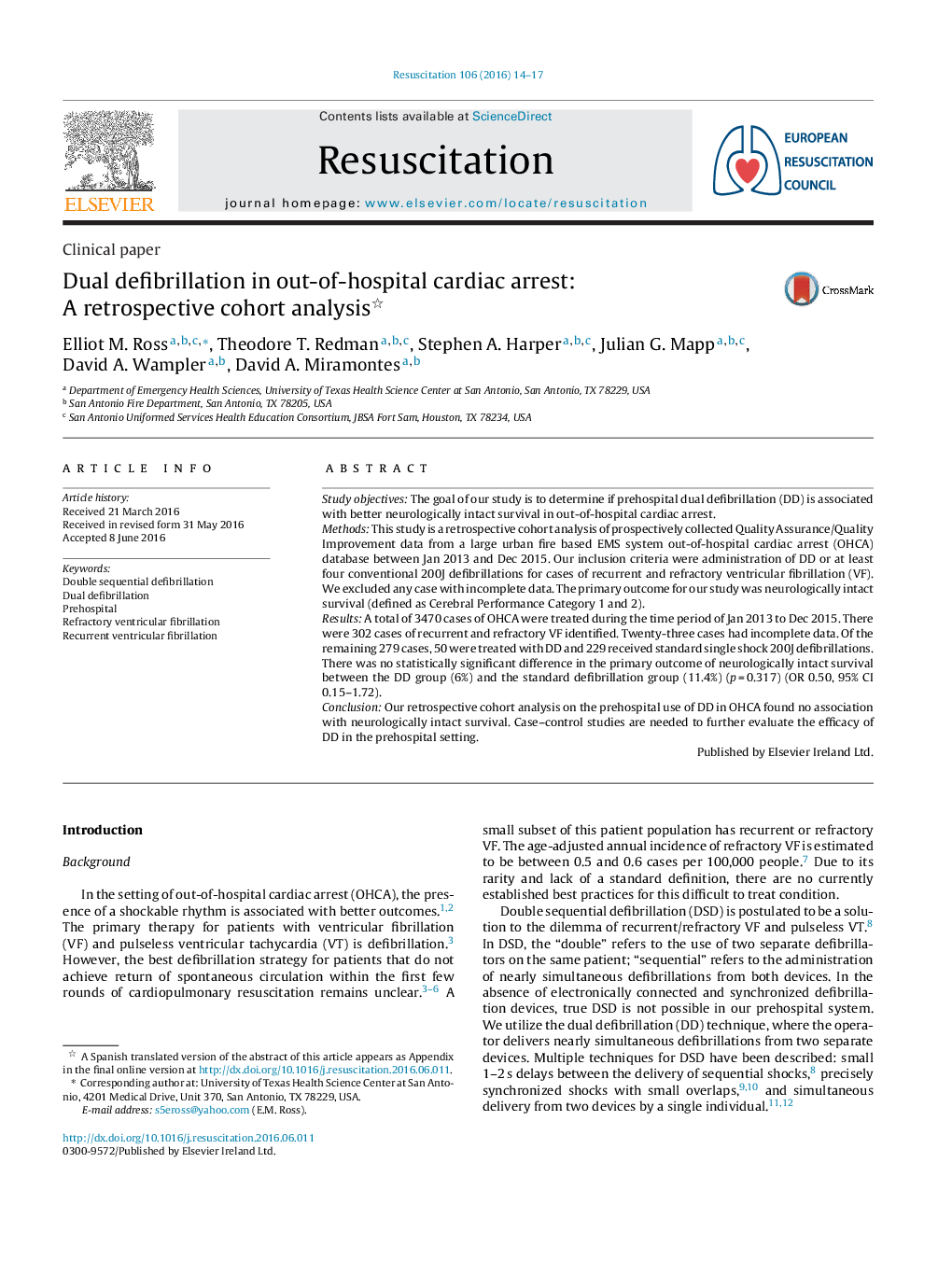| Article ID | Journal | Published Year | Pages | File Type |
|---|---|---|---|---|
| 5997081 | Resuscitation | 2016 | 4 Pages |
Study objectivesThe goal of our study is to determine if prehospital dual defibrillation (DD) is associated with better neurologically intact survival in out-of-hospital cardiac arrest.MethodsThis study is a retrospective cohort analysis of prospectively collected Quality Assurance/Quality Improvement data from a large urban fire based EMS system out-of-hospital cardiac arrest (OHCA) database between Jan 2013 and Dec 2015. Our inclusion criteria were administration of DD or at least four conventional 200J defibrillations for cases of recurrent and refractory ventricular fibrillation (VF). We excluded any case with incomplete data. The primary outcome for our study was neurologically intact survival (defined as Cerebral Performance Category 1 and 2).ResultsA total of 3470 cases of OHCA were treated during the time period of Jan 2013 to Dec 2015. There were 302 cases of recurrent and refractory VF identified. Twenty-three cases had incomplete data. Of the remaining 279 cases, 50 were treated with DD and 229 received standard single shock 200J defibrillations. There was no statistically significant difference in the primary outcome of neurologically intact survival between the DD group (6%) and the standard defibrillation group (11.4%) (p = 0.317) (OR 0.50, 95% CI 0.15-1.72).ConclusionOur retrospective cohort analysis on the prehospital use of DD in OHCA found no association with neurologically intact survival. Case-control studies are needed to further evaluate the efficacy of DD in the prehospital setting.
